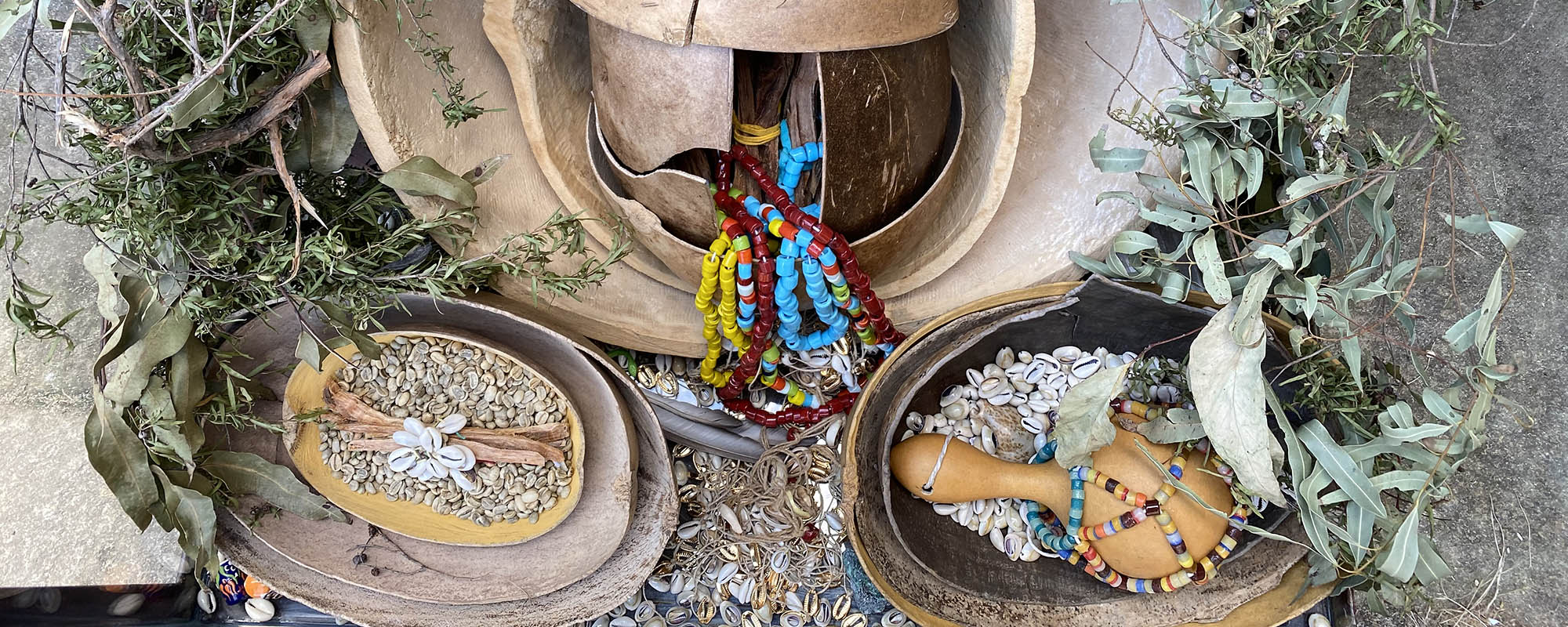An Equitable Human Assertion
“What if our point of departure in encounters with difference stemmed not from domination, but an impulse of radical vulnerability? What would we turn to if we did not cling to power? Would we recognize and comprehend that difference as an opening? Expansive. Limitless. Extremities. Revelation. A space to meditatively confront and embrace our socially limited imagination? Would we become more aware of our sensibilities … feel a multitude of sentiments, feel that, as Toni Cade Bambara asserts, ‘the revolution begins with the self … in the self’. Deference. Humility. Surrender. Grace. Can these sentiments be reflected? What reflects them?”
Acting as a form of rasanblaj (a Haitian Kreyol term which can be translated as an assembly, compilation, enlisting and regrouping of ideas, things, people and spirits), An Equitable Human Assertion is a site-specific work that gathers together materials from around the world, including Australia, which are not simply objects but have agency, as well as multiple functions and significations, sometimes helping to draw together shared histories. Kwi – shells made from the kalbas or calabash tree (Lagenaria siceraria) are used as containers for eating and storage, carvings, musical instruments, and as religious objects. Here, they are the simple, sacred and profane holder of rasanblaj and become living things, creating possibilities for new encounters.

